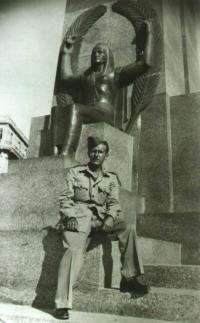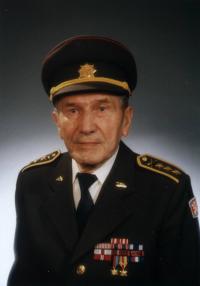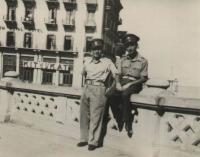Let’s go to Poland, the Czechoslovak army is being formed there!

Stáhnout obrázek
Josef Křístek was born on August 31, 1919 in Domaslavice near Frýdek. He learned the fitter‘s trade and he worked in a coal mine. After the occupation in 1939, he crossed the border to Poland. He joined the Czechoslovak army in Krakov, and via the USSR, he went to the Middle East. He took part in combat at Tobruk in North Africa and in the Middle East. He sailed on the Mauretania to England. The end of the war found him at Dunkerque. He was dismissed from the army in the 1950s. Josef Křístek passed away on February, the 17th, 2016.


